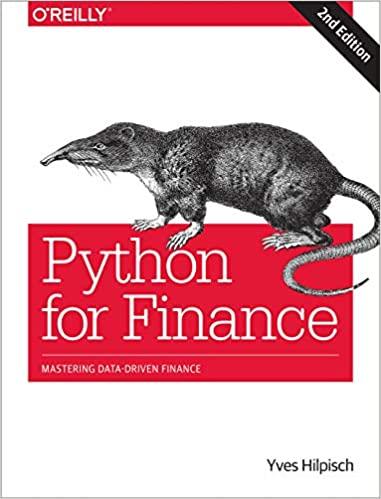Question
1. A portfolio is composed of two stocks, A and B. Stock A has a standard deviation of return of 15%, while stock B has
1. A portfolio is composed of two stocks, A and B. Stock A has a standard deviation of return of 15%, while stock B has a standard deviation of return of 21%. Stock A comprises 60% of the portfolio, while stock B comprises 40% of the portfolio. If the variance of return on the portfolio is .030, the correlation coefficient between the returns on A and B is______
2. An investor can design a risky portfolio based on two stocks, A and B. Stock A has an expected return of 21% and a standard deviation of return of 18.0%. Stock B has an expected return of 17% and a standard deviation of return of 5%. The correlation coefficient between the returns of A and B is 0.50. The risk-free rate of return is 12%. The proportion of the optimal risky portfolio that should be invested in stock A is _________.
3. A stock has a correlation with the market of 0.52. The standard deviation of the market is 28%, and the standard deviation of the stock is 36%. What is the stock's beta?
4. Asset A has an expected return of 20% and a standard deviation of 25%. The risk-free rate is 12%. What is the reward-to-variability ratio?
5. You find that the annual Sharpe ratio for stock A returns is equal to 1.84. For a 3-year holding period, the Sharpe ratio would equal _______.
Step by Step Solution
There are 3 Steps involved in it
Step: 1

Get Instant Access to Expert-Tailored Solutions
See step-by-step solutions with expert insights and AI powered tools for academic success
Step: 2

Step: 3

Ace Your Homework with AI
Get the answers you need in no time with our AI-driven, step-by-step assistance
Get Started


